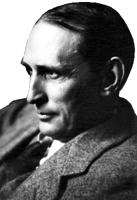
|
The Society of Folk Dance Historians (SFDH)
Folk Dance Authenticity
[
Home |
About |
Encyclopedia | CLICK AN IMAGE TO ENLARGE |

|
There's a useful concept in folkloristics called Normalform (it's a German term, despite its neat English equivalence, hence the capitalization). A Normalform is that variant of an item, whether a folktale, a ballad verse, a dance, a tune, or any other piece of folklore, which serves as a standard by which other variations are judged. It may be idiosyncratic (personal), or social. If personal, it may be the way you first learned it, or the way someone you respect taught it to you later; if social, it may be "the way we've always done it" or some new way that gains favor out of presumed authenticity (a treacherous concept in itself) or just because it's fashionable. Departures from Normalform are often regarded as wrong, untraditional, and so on. The problem is, every person or social group tends to regard his, her, or its own variant as the Normalform. In other words, it's all relative.
A hundred years ago, many folklorists busied themselves trying to find something called the Urform (another German word), meaning "the original form" of a folklore item. Extensive and elaborate studies were undertaken, notably among Finnish folklorists, to discover a tale's origins. Though the idea of Normalform retains its usefulness, the Urform concept has been long abandoned as an exercise in futility: there is no identifiable "original form" of a folklore item. Even a story invented by a known storyteller does not become folklore until it has been retold and accepted as "one of our stories," rather than "one of her or his," and by that time, subtle changes will have been introduced. It can also be said that every performance of a story, dance, tune, etc. is unique, and that the boundaries of acceptability (that is, conformance to Normalform) are flexible. That's the case even in something as specific as Uppdansning: otherwise, very few would win medals.
–Paul Jordan-Smith
DOCUMENTS
- Authenticity in International Folk Dancing and Music, an article.
- What is Authenticity in Folk Dance?, an article.
This page © 2018 by Ron Houston.
Please do not copy any part of this page without including this copyright notice.
Please do not copy small portions out of context.
Please do not copy large portions without permission from Ron Houston.